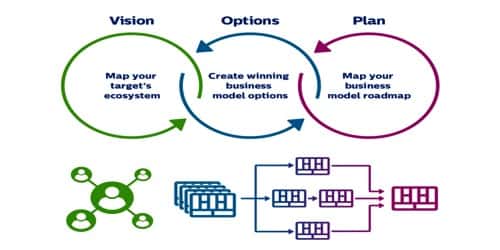A business model is a conceptual structure supporting the viability of a business, including its purpose, its goals, and its ongoing plans for achieving them. It is a plan for the successful operation of a business, identifying sources of revenue, the intended customer base, products, and details of financing.
At its simplest, a business model is a specification describing how an organization fulfills its purpose. All business processes and policies are part of that model. According to management expert Peter Drucker, a business model answers the following questions: Who is your customer, what does the customer value and how do you deliver value at an appropriate cost?
A business model is similar to a business plan in its makeup and content. However, a business plan specifies all the elements required to demonstrate the feasibility of a prospective business, while a business model demonstrates the elements that make an existing business work successfully. A model is a company’s plan for how it will generate revenues and make a profit. It explains what products or services the business plans to manufacture and market, and how it plans to do so, including what expenses it will incur.
The benefits of business model documentation include maintaining a focus on corporate goals, reviewing operational practices, and ensuring that the two are congruent. A representation of a company’s business model can be incorporated into public relations (PR) material and is useful to share with customers and partners. A mission statement or vision statement may be included in a business model.
Traditionally, financial goals have been the main focus of such models but business sustainability and corporate culture have become increasingly integral to business plans in recent years.















